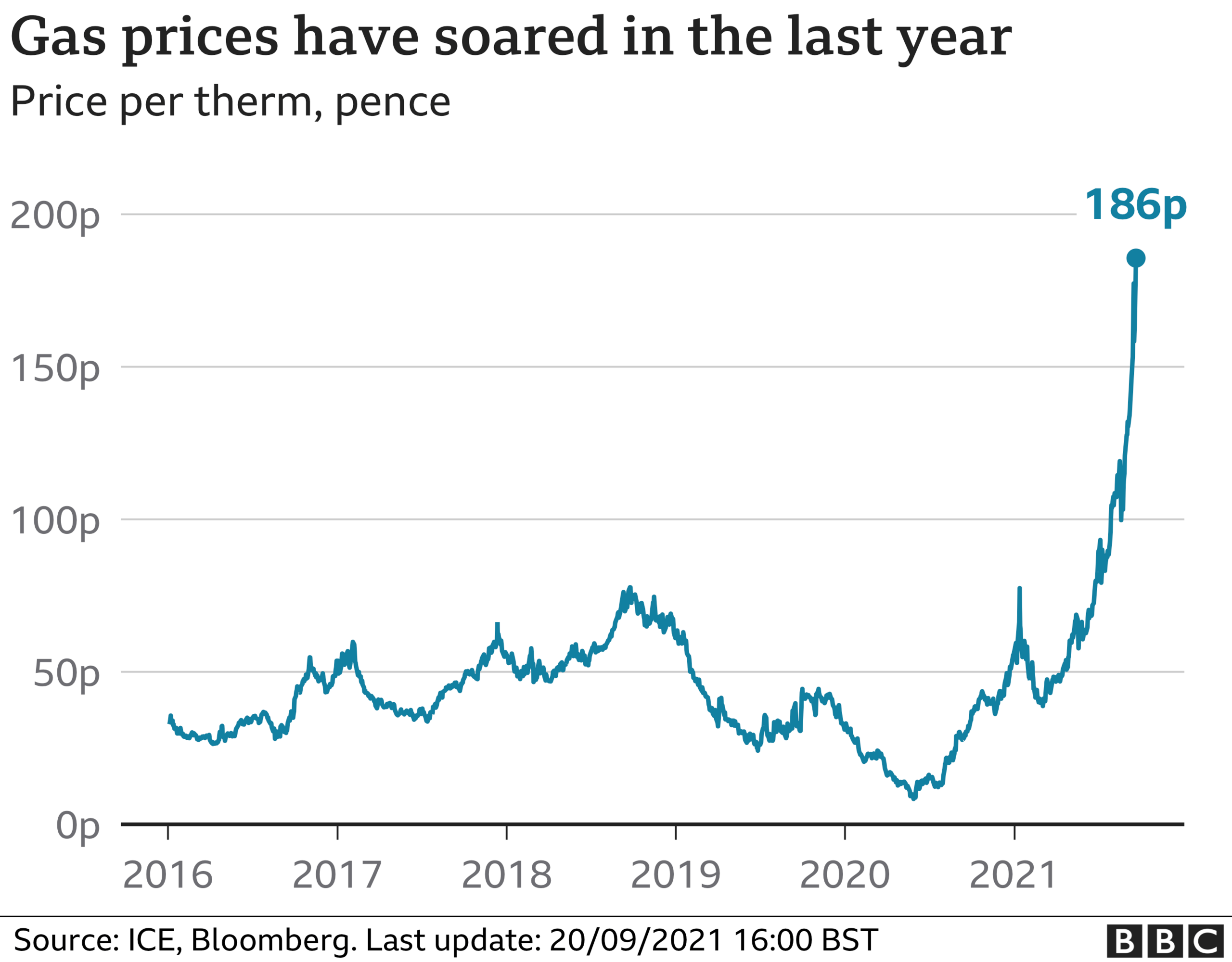Can the energy market survive this crisis?
- Published

While a trebling in wholesale gas prices is a crisis, there are many conflicting agendas at work here.
This is not, as some in the industry have suggested, analogous to the 2008 financial crisis. Then, half the banking system went bust.
Now, mainly tiny companies, many of which aren't even well known to subscribers of Utility Week, are going bust after some adventurous forays into the energy markets. The number of customers is about one million.
While security of their domestic supply must be maintained, this should not be an existential, systemic crisis, except some of the big boys in the industry are talking this up in those terms.
Why? Well, in the House of Commons, the Business Secretary Kwasi Kwarteng chose an interesting turn of phrase that "we must not return to the cosy oligopoly of years past".
It rather points to the fact that some in big energy want precisely this. That in return for helping to tidy up the mess of the energy market minnows - even using their financial muscle now to respect at a loss, the energy cap for transferred customers - they expect to re-establish healthy profit margins for years to come.
There has been some talk around the idea of limiting switching for a period of time. This would be an anathema to a government committed to free enterprise and a market economy.

The Business Department is not keen, but ultimately the industry may have calculated that a Downing Street with a post-Brexit, post-pandemic comfort with statist intervention, could be persuaded in this direction.
Others might argue that since the UK became heavily dependent on globally-priced imports of energy, that all "competing" energy companies have largely been selling the same therms and watts of energy through the same pipes, with different logos and marketing budgets.
Given events in global markets, energy prices are going up by hundreds of pounds a year. The UK remains at the end of the pipeline of gas imports, and while supply is still assured, the price paid is certainly not.
The cap was designed to limit the margins made by big suppliers, not to counteract the global supply costs of domestic energy.
And should energy companies succeed in limiting future competition as the price of maintaining seamless supply to customers of bankrupt companies, then those prices may not come down quickly.
Other countries are looking at new subsidies for bills, but that is tricky for a country trying to achieve a path to eradicate overall carbon emissions.
So at a time when some of the pandemic economic support, such as universal credit, is being cut back, this additional and highly visible extra squeeze on living standards is here to stay over winter.
- Published21 September 2021

- Published20 September 2021

- Published19 September 2021

- Published18 September 2021

